Top traffic cop Stephen Leane flags more speed cameras and doctors dobbing in elderly drivers
Victoria’s new top traffic cop is on a mission to cut the state’s road toll. Elderly drivers and even more speed cameras are on his radar. The bold plans on Stephen Leane’s hit list revealed.
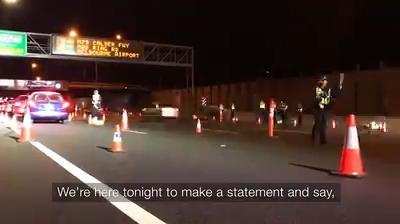
Law & Order
Don't miss out on the headlines from Law & Order. Followed categories will be added to My News.
Victoria’s new top traffic cop has flagged more speed cameras and getting doctors to dob in dodgy elderly drivers.
Assistant commissioner Stephen Leane also vowed to look worldwide for radical game changers to drastically cut the state’s road death and injury toll.
He said if considerable reductions in that tragic toll are to be achieved then the community will have to accept significantly tougher measures that will be unpopular in some quarters.
SHOCKING ROAD TRAUMA TOLL ON THE YOUNG
MODERN VEHICLE SAFETY FEATURES THAT SAVE LIVES
SPEED CAMERA WATCHDOG JOHN VOYAGE URGES ACTION

In his first interview since starting his new road policing role last week, Mr Leane said controversial measures he would examine the possibility Victoria Police implementing included:
MORE point-to-point speed cameras on major highways such as the Western Ring Rd and Tullamarine Freeway;
ENCOURAGING doctors to report elderly and other motorists they consider should not be driving so the patients can then be tested to see if they are suitable candidates to keep their driver’s licences;
USING hi-tech long lenses on cameras to snap motorists using their phones or not wearing seatbelts well before motorists are close enough to spot the camera;
ROADSIDE testing by police to detect fatigued drivers using futuristic eye scanning technology being examined by experts from VicRoads and Monash University;
MORE 40kmh zones in the metropolitan area and lowering speed limits on country roads.
“If I am going to make a difference I have to do more than just deliver more of the same,” Mr Leane said.
He has already started the process of consulting widely with experts in various fields during what he describes as his “root and branch” review of how Victorian roads are policed.
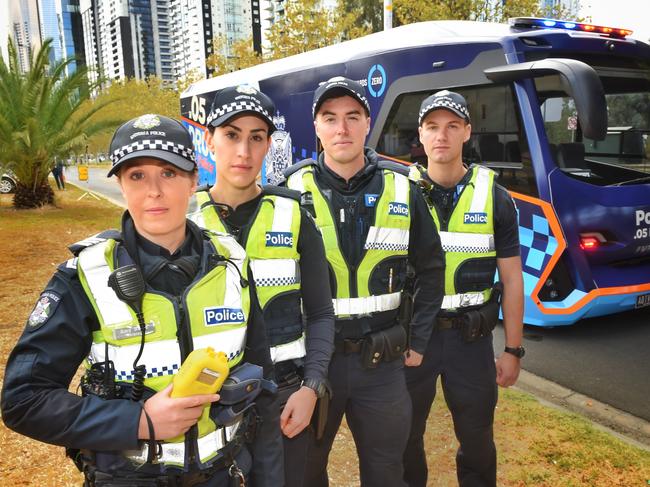
Mr Leane stressed he hadn’t yet formed a view on the merits of some of the controversial tactics he would be researching, but revealed “everything is up for consideration and nothing is off the table”.
But he said the various radical measures already being looked at, and others he expects to identify through speaking to technology, road safety and other experts, needed to be seriously examined and considered — and would be under his command.
He said introducing tough new laws and road policing methods were necessary if there was to be a significant reduction in the shocking number of Victorians killed and injured on our roads.
“We need to find a game changer and not just one,” Mr Leane said in an exclusive interview with the Herald Sun.
“We need to find a game changer in relation to drugs and driving, we need to find game changers in relation to vehicle safety and we need to find game changers around enforcement and safer roads.
“For me it’s a root and branch review of everything that happens within road policing. Everything is up for consideration.
“We may not get to it in the next three years, but if we are going to get to zero — or make considerable reductions in the number of times we have to knock on people’s doors and tell them their family member isn’t coming home for Christmas — then we have to make significant changes.
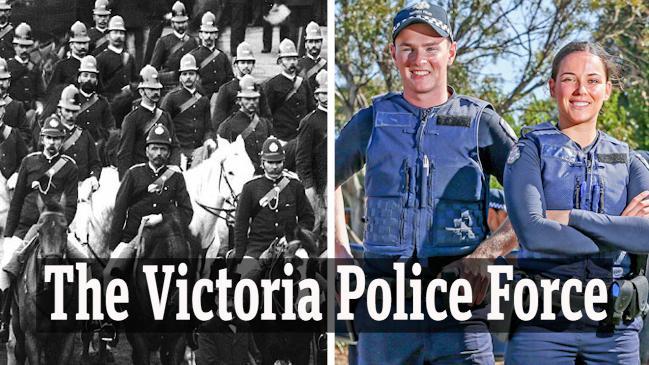
“I think there are big solutions out there that will be game changers. I don’t necessarily know them but I know there are people that will.
“So from my perspective I want to take more of a leadership role and get as many people collaboratively around the table as we can.
“I want to set the platform that there needs to be considerable step changes in what we do.”
The latest statistics help ram home why Mr Leane is so determined to find new ways to cut the state’s road death and injury toll.
He today revealed one of those ways would be a dramatic increase in the number of Victorian motorists who will be subjected to roadside drug tests in 2018-19.
Mr Leane said of the 259 people who died on Victoria’s roads last year, 166 were riders or drivers.
Of those, 56 either had drugs and/or alcohol in their system.
In what Mr Leane sees as is a worrying trend, more had used illegal drugs than had drunk alcohol, with 27 being found to have taken illicit drugs, 21 had alcohol in their system and a further eight had used both.
The large number of motorists being nabbed for various offences has also convinced Mr Leane to increase the presence of visible and undercover police on our roads as the latest statistics for last year reveal far too many are still driving dangerously.

The Victoria Police infringement statistics show:
• 139,153 people were caught speeding,
• 77,492 were detected speeding by 25km/ or more over the posted limit,
• 30,966 were nabbed using mobile phones while driving,
• 13, 577 were nabbed not wearing seat belts; and
• 3594 were caught drug driving and 1850 people detected drink driving.
The prevalence of people driving after taking illicit drugs has prompted a 50 per cent increase in the number of motorists who will be stopped and drug tested by police in 2018-19.
“We did 100,000 last year and we will be doing 150,000 this year,” Mr Leane said.
He will also examine ways of speeding up the drug testing process — at present, it can take months before drug drivers can be charged and banned from driving as if they test positive when police stop them.
This is because the sample has to be sent to a laboratory for confirmation before the offender can be taken off the road.
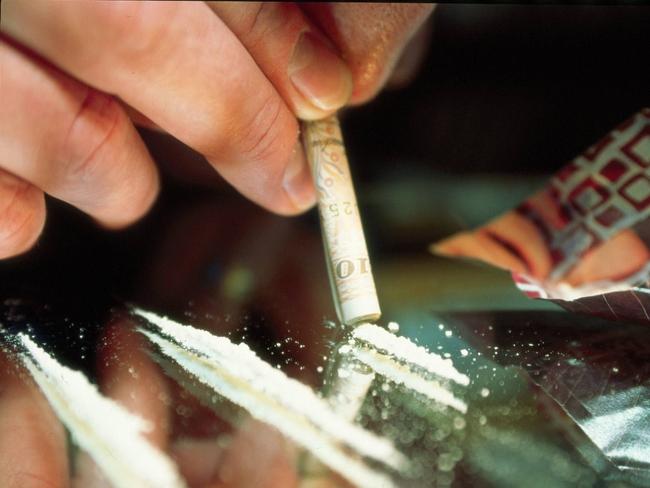
He will investigate ways of improving the saliva testing process so it can detect more drug types such as cocaine, heroin and prescription medicines, as at present the tests can only detect the presence of THC, the active component in cannabis, methamphetamine, which is found in drugs such as speed and ice and MDMA, which is found in ecstasy.
Mr Leane also plans to examine new ways of reducing the number of rural road deaths and injuries as the latest statistics show Victorians are five times more likely to die in the country than they are in the city.
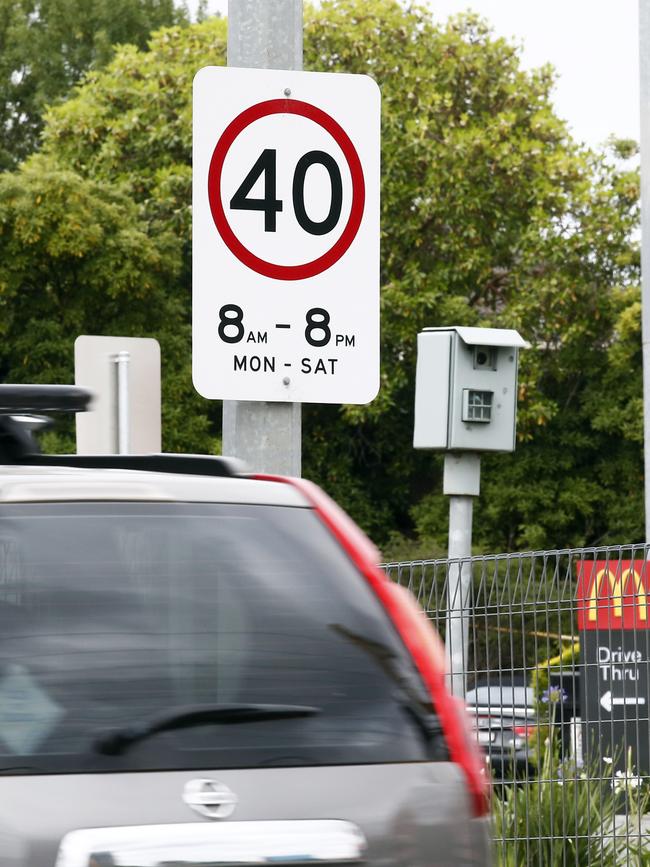
He flagged reductions in speed limits in some county areas, including on unmade roads.
“On the way collisions have occurred in country areas, excessive speed is a problem and speed relevant to conditions hasn’t been appropriate so we need to think that through,” Mr Leane said.
He said he hadn’t yet formulated a personal view on the merits of introducing a zero blood alcohol level for all Victorian drivers, but said it was a measure he would be gathering evidence and information on to see if it was warranted.
“A place like Poland has zero with their love of vodka and other strong spirits but a place like Australia has .05 so I think it has to be talked about and it all needs to be considered,” Mr Leane said.
He said he would also be examining the merits of introducing more 40kmh zones.
“Certainly the 40kmh zones within the city of Melbourne have had a significant effect, not just on the number of collisions that have occurred but also the severity and the nature of the injuries that people are having,” Mr Leane said.
“There is enough case study there for anybody, whether you are a researcher or Joe in the street, to understand if you have a collision at 40kmh rather than 60kmh both what you hit or who you hit, and yourself, is going to be far better off.”
Mr Leane said he would do what he could to lobby vehicle manufacturers to follow the lead of Volvo.
“For Volvo, now their marketing is not about how well their cars can perform,” he said.
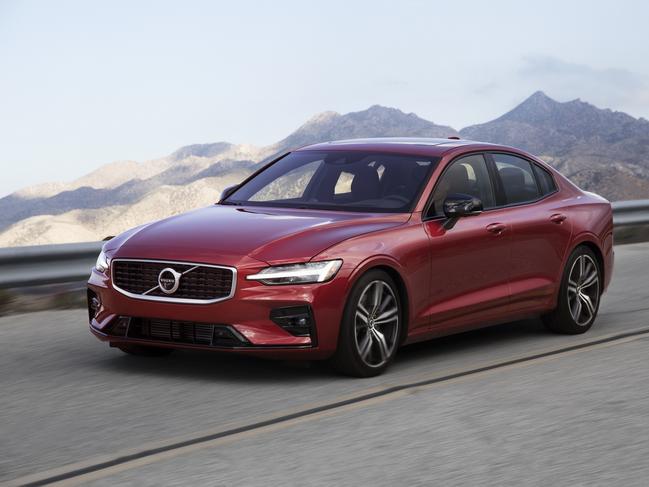
“Their marketing is around how safe the car is, both for the person inside the car and the person outside the car.
“So big manufactures are actually finding ways of keeping the owner of the vehicle as safe as they can.”
Mr Leane said he also intended investigating ways police and other agencies could influence young people and older drivers to invest in newer and safer vehicles.
“If mum or dad are still driving and they are in their early 70s maybe it’s time to not let them save the nest egg to pass on to the children but to get them to update their car to a safer one,” he said.
“And if you have an 18-year-old who is about to get their first car the price, convenience and economy are big drivers, but so too should be the safety rating and the mechanical validity of the car.
“I think I can do a lot of influencing in that space. I will reach out to people like the RACV and others about how we can influence that.”
Mr Leane said he would continue to focus on lives lost on the roads and how to prevent that loss of life.
“We talk about the lives lost because it has a big impact on the whole community,” he said.
“But another part of it for me is an increased focus on serious injuries.
“There’s mental injuries as well as loss of limbs and incapacity that comes with that.
“I think that’s a bit hidden at the moment so I would like to raise some interest in the community around those sorts of impacts.”
